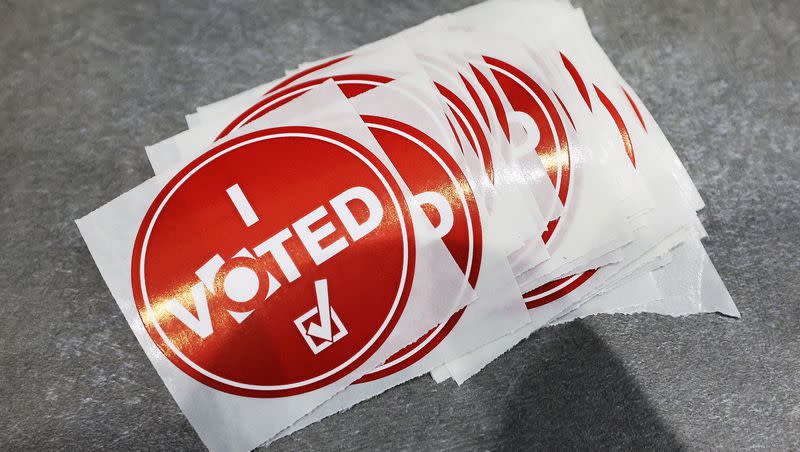Opinion: Do 16-year-olds deserve the right to vote?

When I was 12, I made money from a paper route. (If you don’t know what that is, ask a grandparent.)
Sometimes, I would use that money to buy something, which meant I would pay a bit of sales tax.
So, I ask you, was this taxation without representation? After all, at age 12 I was not allowed to vote. I had no say as to who represented me at the statehouse and imposed that tax.
If you think the question is absurd, you’re right. But you also probably have not been following the nationwide push to lower the voting age to 16 — a move often promoted under the logic that 16-year-olds can hold jobs and pay income taxes, therefore they should be able to help elect the people who make decisions regarding that tax.
Americans are great at using equivalence arguments when it comes to defining when someone becomes an adult. A half-century ago, the Constitution was amended to lower the voting age to 18, based on the argument that an 18-year-old could be drafted into the armed services and die in Vietnam, and therefore should be allowed to vote for the people who authorize war. That one made some sense.
Related
And yet, states still don’t let people legally drink alcohol until age 21. Various states grant restricted driver licenses by age 15 or 16, with problem-free drivers receiving full licenses between 16 and 18. If you want to start an interesting conversation, ask a parent whether his or her 16-year-old is really ready to pilot a car down the street.
I’m guessing few people believe adulthood is bestowed by lightning at 12:01 a.m. on a certain birthday. It’s a gradual process. By 18, people tend to possess the physical maturity and reaction skills necessary to make an effective soldier. By 21, they, theoretically at least, possess the maturity to drink alcohol responsibly.
And yet, science has established that the prefrontal cortex, which regulates thoughts, actions, emotions and judgments, does not fully develop until the age of 25. Your mileage may vary.
I know what some of you are thinking, and at least one presidential candidate is going there. Republican Vivek Ramaswamy wants to raise the voting age to 25, with some exceptions.
Good luck with that.
Some Democrats (not all) are leading the charge to lower the voting age to 16, which would require a constitutional amendment. The reason is simple. Young people are believed to be more likely to vote for Democrats. Statistics bear that out. But then, statistics also show that the 18-21 age demographic that won the right to vote in 1971 also has the lowest turnout rate.
When she introduced legislation to lower the voting age to 16 earlier this year, U.S. Rep. Grace Meng, D-N.Y., said it would increase “youth voter participation.” That’s not likely.
She also said “studies have found that 16-year-olds hold equivalent levels of civic competence to 18-year-olds.”
Maybe, but that probably says more about 18-year-olds than 16-year-olds.
This idea, unfortunately, is catching on. A number of smaller cities already are allowing 16-year-olds to vote in municipal and other local elections, something that doesn’t require a change in the Constitution.
Related
If they can vote, they ought to be free to run for those offices, as well. Perhaps juvenile courts may one day be jammed with election law violations.
All you really need to know in this debate is that a poll by the Reboot Foundation found that 64% of teens said they would choose to give up their voting rights rather than sacrifice their TikTok accounts for a year.
Of course, I’m not aware of any survey that asks adults the same thing, and I’m kind of afraid of what one might find.
True confession time: Three years ago, I wrote a column expressing tentative support for allowing 16-year-olds to vote in local school board races. The idea was that they are directly affected by their school board, and that few adults cast meaningful ballots in those races, anyway.
I was wrong. I blame COVID-19, which I didn’t have at the time.
However, in defense of the young people, adult behavior can be difficult to find at any age these days. Anyone who watched a presidential debate three years ago or who has listened to any sort of national political rhetoric recently might believe the major parties already are appealing to the most immature voters.
Perhaps even to someone I could have identified with as a 12-year-old paperboy.

